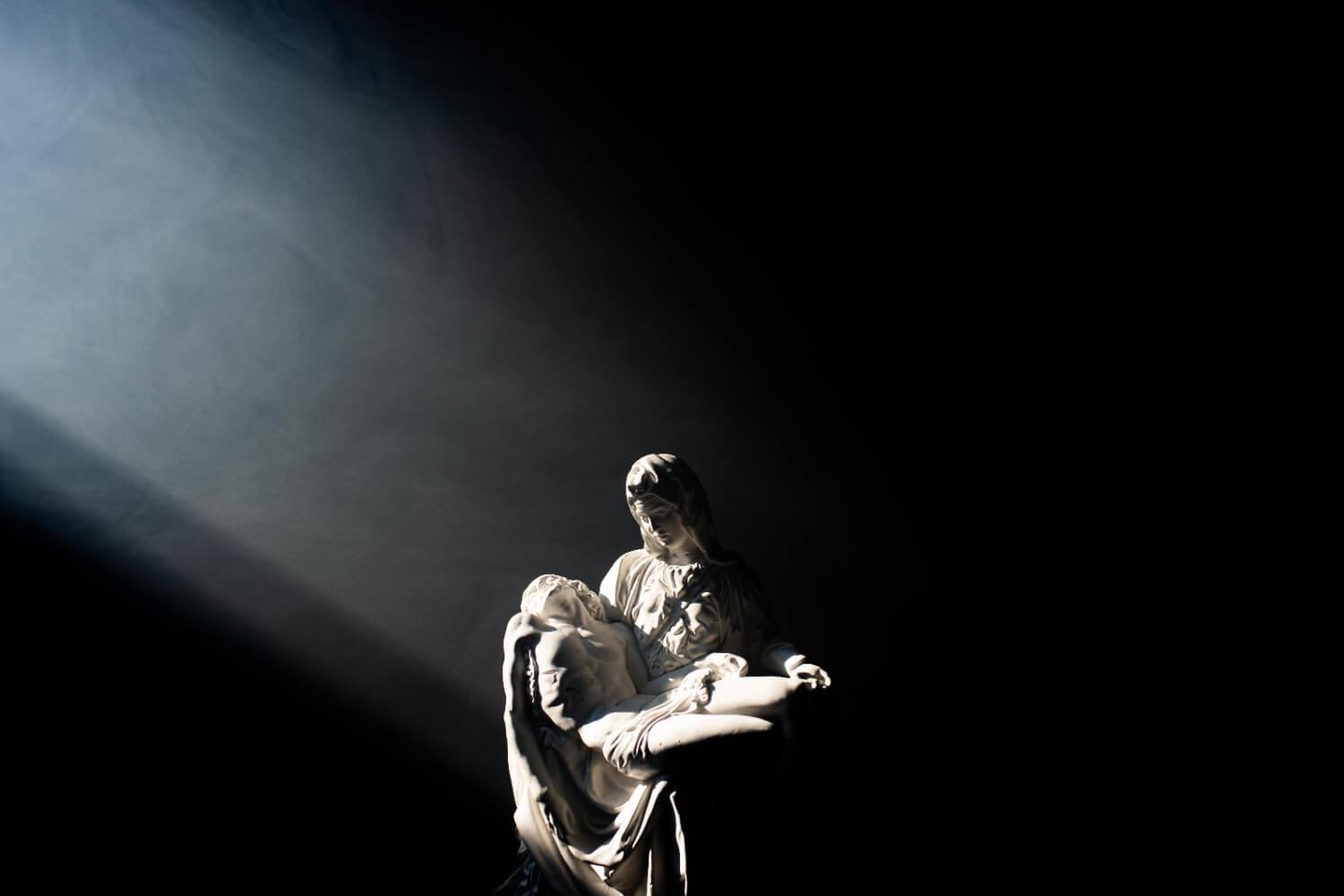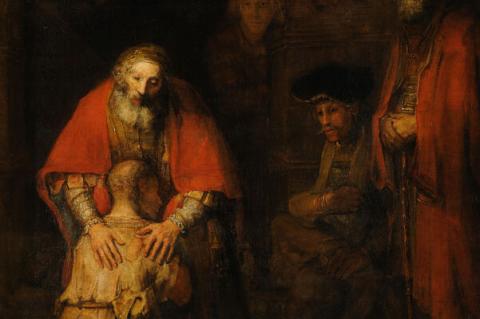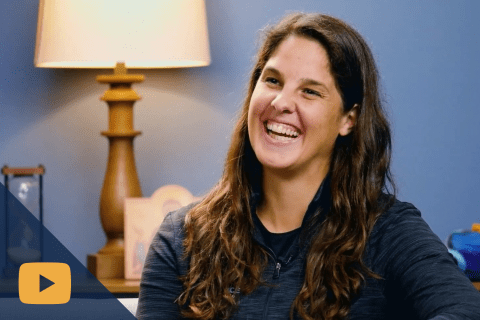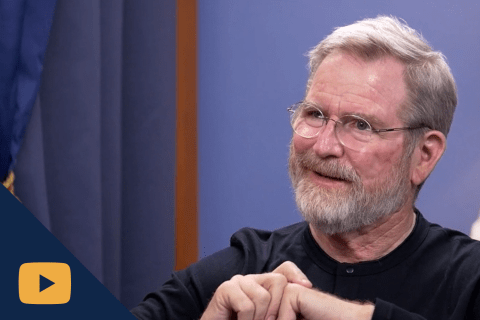
“To give a real assent is an act of religion; to give a notional, is a theological act. It is discerned, rested in, and appropriated as a reality, by the religious imagination; it is held as a truth, by the theological intellect.” – St. John Henry Newman, Grammar of Assent
We have all had an experience like this: we are proceeding happily enough in our knowledge of a given situation, and then something happens that radically changes the way we experience what we know. For years a man has been looking forward to becoming a father. Then, for the first time, he holds his newborn child in his arms, and he says, “I never knew what it meant to be a father until now.” A couple has carried on a lengthy courtship and has gotten married. Two days into the honeymoon, the new wife says to herself, “It’s hitting me for the first time that I’m going to be married to this person for the rest of my life.” Perhaps we have had a dream of going on a cruise through the Greek islands. We finally get the opportunity, we book our passage, and then as we are walking up the gangplank, we say, “I can’t believe I’m really going to see the Aegean!” In any of these cases, a friend who had overheard these exclamations might ask, “So you’re saying you didn’t know you were getting married” or were having a child, or booking a ticket? “Of course I knew,” the response would be, “but it’s somehow different now. It seems as though I hardly knew it before at all.”
There is something psychologically curious in this common experience. It points to two different ways that we can know something. St. John Henry Newman notably gave these two kinds of knowing the names of ‘notional knowledge’ and ‘real knowledge.’ By calling the second kind of knowing ‘real,’ he was not suggesting that the first way of knowing was simply unreal. He considered notional knowledge to be a genuine way to know something. Rather, he meant that when we know something notionally, we know it to be true, but it has not become a living truth within us. It rests on the surface of our minds. What we know notionally does not function as an intuitive principle of thought and action until it becomes real.
Much of what it means to be converted to Christ and gain a renewed mind is to go from knowing the truths of the faith notionally to knowing them really. Learning things notionally is usually the way we begin. We get hold of notional truths in all kinds of ways: we come upon them in books, we learn them from parents and teachers, and we recite them in the creeds of the Church. This kind of notional knowledge is essential for us. Having once learned such truths notionally, however, they need to become “real” for us: they need somehow to penetrate our minds and spirits such that they provide the practical basis of our actions.
For now we see in a mirror dimly, but then face to face. Now I know in part; then I shall understand fully, even as I have been fully understood.
How does a truth go from being notional to being real? It can happen in many ways. One way the transition can occur is through a vivid experience; for instance, a person knows notionally that someday he is going to die, but he faces his mortality seemingly for the first time when someone close to him is taken. We have a notional understanding of what friendship and love mean, and then when we encounter someone special our notional ideas take on a vivid practical reality. We have been taught and have accepted the truth that God loves us, and then on a retreat we have a moving encounter with God in prayer that awakens that truth and makes it a living principle within us.
A second way in which knowledge can go from notional to real is by calling to mind what we know and steadily meditating on it. This is one reason why Christians have been so insistent on the practice of daily prayer. Resting the mind on a given truth secures that truth more firmly in our inner being. Preaching has the same goal. A good preacher is not telling congregation things they have never heard before. They know, at least notionally, what he is speaking about. The point of preaching is to call important truths to mind and, if possible, to “drive them home” in fresh and compelling ways. The preacher is helping to move notional truths to real truths, keeping the reality of those truths fresh in the minds of his hearers.
A third way in which a notional truth can become real is through an artistic rendering of some kind. A compelling piece of poetry, a moving strain of music, an impressive architectural space, a stirring movie or play, or a riveting novel can bring truths home to us and make them come alive for us in new ways.
Sometimes, we are just given the grace to “see.” We know something to be true in a real and vivid way, not because of any particular experience, but as a gift of God’s grace or by an intuitive understanding.
Just as knowledge can go from notional to real, so can the reverse happen. Something that we have known as a real and living truth can lose its hold on us and float to the surface of our minds, and then often enough slips away entirely. Truths concerning the most important things are like muscles that atrophy and disappear if they are not exercised, or like a relationship that fizzles and grows distant if it is not attended to.
If this distinction between notional and real knowledge is true, it becomes an important practice of the Christian faith to find ways of moving the notional to the real and of maintaining and deepening the penetration of what Newman called the “religious imagination.” Prime Matters aims to be of help in this important work of awakening the Catholic imagination. We want to see the truths of the faith in all their vivid color and pregnant possibilities such that they can take their proper place as first principles of thought and action in those who hold them.

Remembering Who We Are
Through a simple allegory, a challenge is presented: "Can it be that you have entirely forgotten who you are?"

Previous: The Intellectual Life
The New Testament makes clear that the mind is the key area of battle and conversion, and the key task of the Catholic university is to initiate students into the Catholic imaginative vision.


